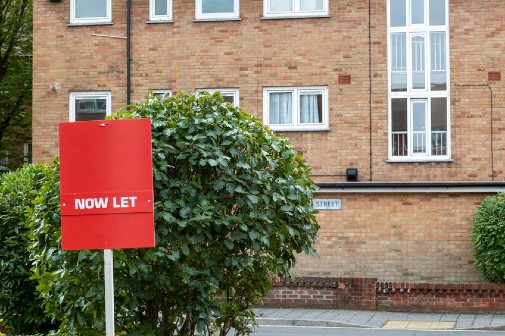Reduced investment in social housing and the sale of social housing stock via right to buy have led to an increased reliance on the private rented sector by low-income households, a new study reveals.
 Baby boomer landlords are now ageing out of the market. Pic credit: Gary Hider
Baby boomer landlords are now ageing out of the market. Pic credit: Gary Hider
The authors of the study say the new research poses questions on how far it's viable for private landlords to play that role, and whether the future supply of property will be robust and sustainable. The research has also found that Universal Credit is having a big impact on landlords' letting decisions.
Regulation
The study, led by the University of York's Centre for Housing Policy and funded by the Nationwide Foundation, also reveals that a large cohort of 'baby boomer' landlords are now simply ageing out of the market and are not being replaced at the same rate by younger landlords due to diminished returns and more stringent regulation.
While the study finds that across England many landlords won't let to 'DSS' claimants, nevertheless there are parts of the country with high levels of housing benefit claims.
The five local authorities with the highest levels of housing benefit claims - Redcar & Cleveland, Blackpool, East Northamptonshire, Enfield and Tendring - all have a private rented sector where 55 per cent or more tenants receive housing benefit. Around 28 per cent of all tenants receiving benefit live in a 'benefit dominant' local authority.
Returns
There are some locations where increases in the housing benefit rates combined with low house prices mean that landlords can achieve better returns by letting to benefit recipients compared with letting on the open market.
Some landlords with lower-rent lettings preferred tenants who received housing benefit. As one small Teesside landlord said: "I won't discriminate. I'm from a pretty poor background myself. We always lived in rented accommodation when we were kids. If people aren't working it doesn't necessarily make them a bad person. In my mind, it's almost safer than letting to somebody who's employed."
Some landlords are increasingly targeting the housing benefit claimants with the greatest additional needs, where it can be guaranteed that the rent is paid directly to the landlord. Landlords see this as a way of reducing the risk of rent arrears.
Delays
The vast majority of lower-income letting takes place outside these housing benefit dominant markets. Here it was more likely to find that landlords were unhappy about the long delays with initial payments of housing benefit and problems with managing Universal Credit particularly where tenants fell into arrears.
Landlords were of the view that it was easier simply to let to tenants who did not need help paying the rent. As a consequence, there are concerns that the number of landlords willing to let to benefit recipients in these locations is diminishing. Indeed, there is evidence that landlords are withdrawing from letting generally, and from the housing benefit market specifically:
Other key findings include:
- Across the entire sector there was a fall of 30 per cent in the volume of buy-to-let mortgages between 2014/5 and 2018/19;
- Larger landlords and landlords letting to housing benefit claimants were much more likely to be planning to reduce their properties and/or exit the market than to increase their lettings.
- Landlords are generally dissatisfied with the weight of 'regulatory burden' which includes possible criminal convictions and fines of up to £30,000 for Housing Act contraventions.
- A withdrawal or restriction in the ability to serve s21 'no fault' evictions meant that some landlords were worried that they would be unable to evict problematic tenants; there was evidence of landlords paying such tenants to leave
- Landlords are reducing their housing benefit lettings and new landlords are less likely to let in this market: only 9 per cent of landlords in the market for three years or less said they currently let to people receiving housing benefit; for landlords letting for 11 or more years, this figure was 28 per cent.
Lead author of the project, Dr Julie Rugg said: "This research has really helped us understand how landlords at the lower end of the market pay for and manage their property.
"It's a real concern that many good, professional landlords are no longer letting to housing benefit claimants because of the way that Universal Credit is administered'.
Hassle
Dr Rugg added: "Letting property looks altogether different to landlords now: it looks like a much risker proposition, delivering a lower level of return and with a lot more hassle.
"As one landlord said to me, 'stocks and shares may not deliver the same level of return, but they don't phone me on a Sunday morning because the boiler's bust'.






